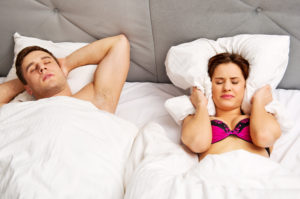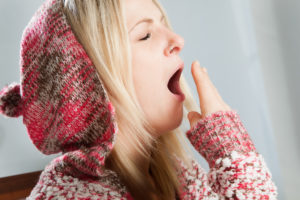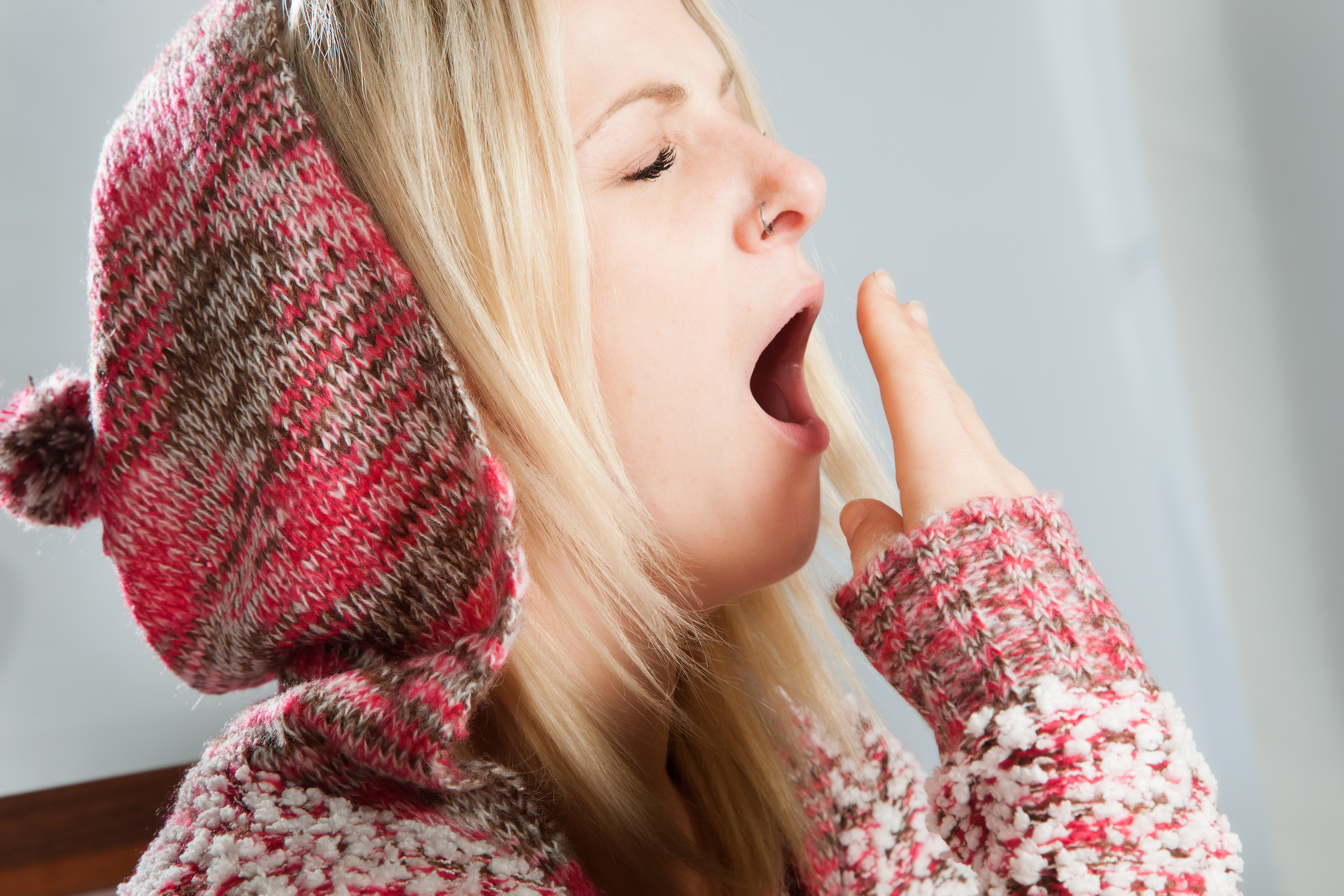
Do you need a sleep study?
Obstructive Sleep Apnea (OSA) is a chronic condition that manifests itself in your activities of daily living without you realizing it. If you have high blood pressure, constant daytime sleepiness or your energy level is low sleep apnea might be the culprit agent. However, not everyone who experiences these symptoms requires a sleep study.
Facts about Obstructive Sleep Apnea (OSA)
• Obesity is major risk factor
• Affects 10% of women and 25% of men (Weeks Jr).
• Rates are increasing due to increase rate of obesity
• 40-60% of patient with cardiovascular disease is affected by OSA
• Gold standard treatment is continuous positive airway pressure (CPAP)
Don’t Hold Your Breath
When you are hospitalized and connected to monitoring equipment, sleep apnea can be easily be observed just by looking at your respiratory rate, pulse rate and oxygenation as you sleep.

At home your loved one can look at the rise and fall of your chest and take note of when the apnea episode occurs. This information can be shared with your doctor but you still need a sleep study.
But the best way to diagnose sleep apnea is via a sleep study. In addition, the severity of OSA can also be determined. Sleep apnea occurs when you have frequent episodes of breath holding (apnea) while you sleep. Your airway collapses, narrows and your respiration stops. This can last until you gasp for breath then wake up.
If not treated OSA can become severe and decrease the quality of your life. In addition, you have a higher chance of having heart disease, stroke, and dementia (Force). There has been an increase rate of motor vehicle accident due to sleepiness possible associated with OSA.
Sleep in Peace

Not all sleep is good sleep, therefore you might need a sleep study to determine if you are having good quality sleep. A sleep study is a painless, needle less, incision less test done in a sleep lab to analyze the quality of your sleep. This can be in a hospital or sleep center. During the procedure you are connected to monitoring devices that tracks and record activities while you are asleep. Activities such as leg movement, rapid eye movement, snoring, oxygenation, respiration amongst other things are tracked, recorded and analyze to determine if you sleepy quality is good. Find out below if you should talk to your health care provider about considering a referral for a sleep study.
Snoring
If you are a heavy snorer then you may want to consider being tested for sleep apnea through a sleep study. Most people only know if they snore or not through reports of a sleep partner, roommate or house mate. Some people snoring can be so loud that it wakes up the entire house. Although snoring alone is not a diagnosis of OSA, snoring and being overweight along with other symptoms might be a good indicator that OSA is imminent.
Unexplained fatigue, non-restorative sleep, or daytime sleepiness
There are numerous reasons for being tired including sleeping with at snorer or being the same house with a snore. From low iron levels to busy lifestyles or even depression, it is not uncommon to complain of fatigue. However, if you feel your life is not particularly stressful and you live a healthy lifestyle but are still fatigued, you may want to consider having a sleep study to further assess for sleep apnea. Speak to your health care provider to ensure other concerning causes are not to blame, such as abnormal blood counts or thyroid issues.
Chronic insomnia
Do you frequently wake up in the night tossing and turning? Although there are a number of causes for insomnia, such as stress and anxiety, sleep apnea could be the cause. Heavy snoring can wake you up regularly throughout the night. If you or your partners have noticed that you snore heavily, you may benefit from a sleep study for further assessment. Some patients state they feel themselves stop breathing and gags for air. This might be you too.
Restless legs
Are you aware that your legs wiggle and kick throughout the night? A partner is often the one to report that his/her partner is frequently moving his/her legs at night. If this is the case, there may be an underlying diagnosis of sleep apnea present. Leg movements can be monitored during a sleep study. If a condition called restless leg syndrome is identified, medication may be recommended.
Hypertension
High blood pressure, or hypertension, can actually be associated with sleep apnea. This is often questioned when an otherwise healthy person following a healthy lifestyle with no family history of hypertension is found to have elevated blood pressure readings. Undiagnosed and untreated sleep apnea can lead to high blood pressure. Our bodies need rest to function normally. Chronically interrupted sleep can stress the body and cause hypertension.
Cognitive Decline
Research suggests that there might be a correlation between OSA and cognitive impairment in adults and Alzheimer’s . This happen because intermittent periods of low oxygen and high carbon dioxide in the blood going to the brain can cause metabolic changes in the brain. Symptoms of dementia such memory loss can be observed.
Are You CPAPing Tonight?
Some people may avoid talking to their health care providers about a sleep study because they are not fond of how sleep apnea is managed. Sleep apnea is typically managed through wearing a face mask at night that is attached to a tube and small machine to provide continuous positive airway pressure (CPAP). With advances in management techniques, such as oral devices or mandibular advancement devices, sleep apnea can be managed more comfortably. Lifestyle modifications may also be recommended, such as weight loss, certain sleep positions, and avoiding alcohol.
If you are normotensive CPAP can reduce your systolic blood pressure by 2 to 3 mm Hg. If you are hypertensive CPAP can lower blood pressure 6 to 7 mm Hg (McEvoy et al.). Therefore, it is well worth the effort.
Proper management of sleep apnea helps prevent ongoing fatigue and some chronic conditions, particularly related to cardiovascular disease. If you or someone you know is worried that they might have obstructive sleep apnea, speak to a health care provider to decide if a sleep study is warranted.
Works Cited
Force, US Preventive Services Task. “Screening for Obstructive Sleep Apnea in Adults Screening for Obstructive Sleep Apnea in Adults.” JAMA (2017): 407-417.
Peppard, P. E., Young, T., Barnet, J. H., Palta, M., Hagen, E. W., & Hla, K. M. (2013). Increased prevalence of sleep-disordered breathing in adults. American journal of epidemiology, 177(9), 1006-1014.
McEvoy, Doug R. “CPAP for Prevention of Cardiovascular Events In Obstructive Sleep Apnea.” The New England Journal of Medicine (2016).
Weeks Jr, Kenneth D. “The Basics of Obstructive Sleep Apnea.” American College of Cardiology (2012).
Force, US Preventive Services Task. “Screening for Obstructive Sleep Apnea in Adults Screening for Obstructive Sleep Apnea in Adults.” JAMA (2017): 407-417.
McEvoy, Doug R. “CPAP for Prevention of Cardiovascular Events In Obstructive Sleep Apnea.” The New England Journal of Medicine (2016).
Rosenzweig, I, et al.. “Sleep Apnea and Dementia | Ten Points to Remember.” Lancet Respir Med 14 April 2015.
Weeks Jr, Kenneth D. “The Basics of Obstructive Sleep Apnea.” American College of Cardiology (2012).
(Rosenzweig, Glasser and Leschziner) Sleep Apnea and Dementia | Ten Points to Remember
